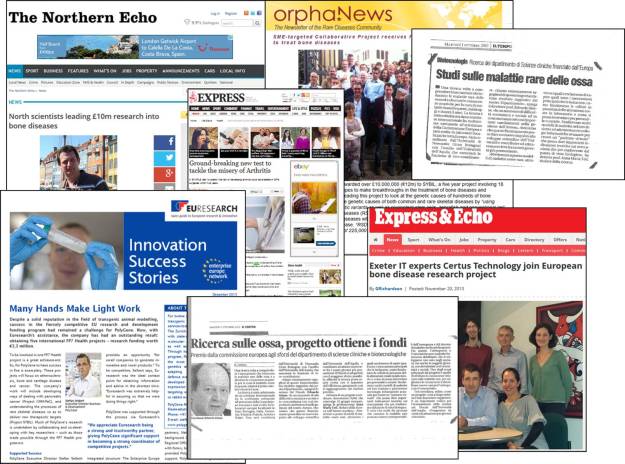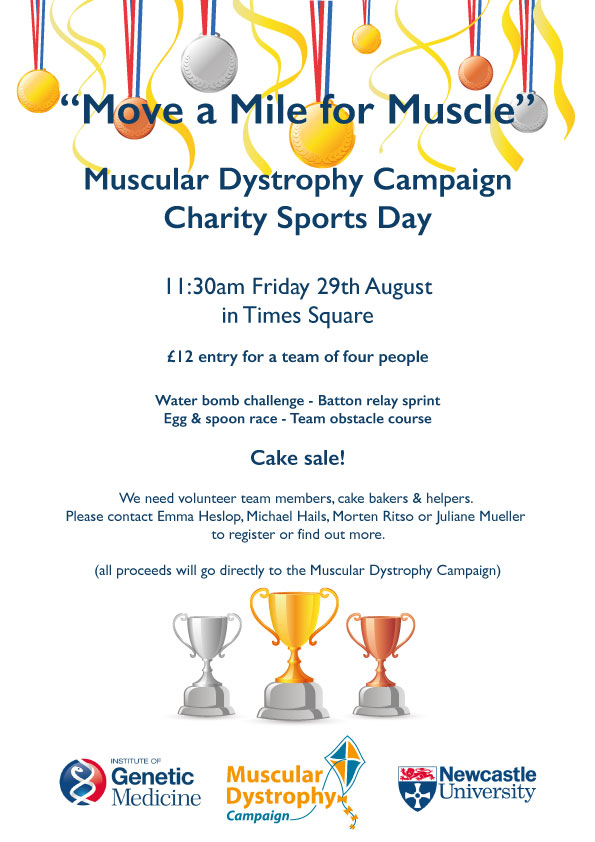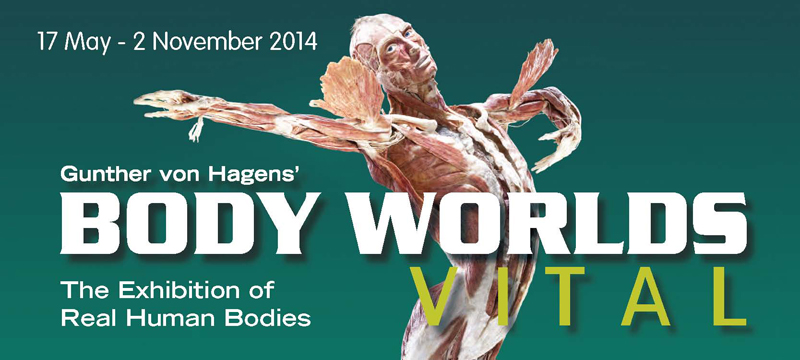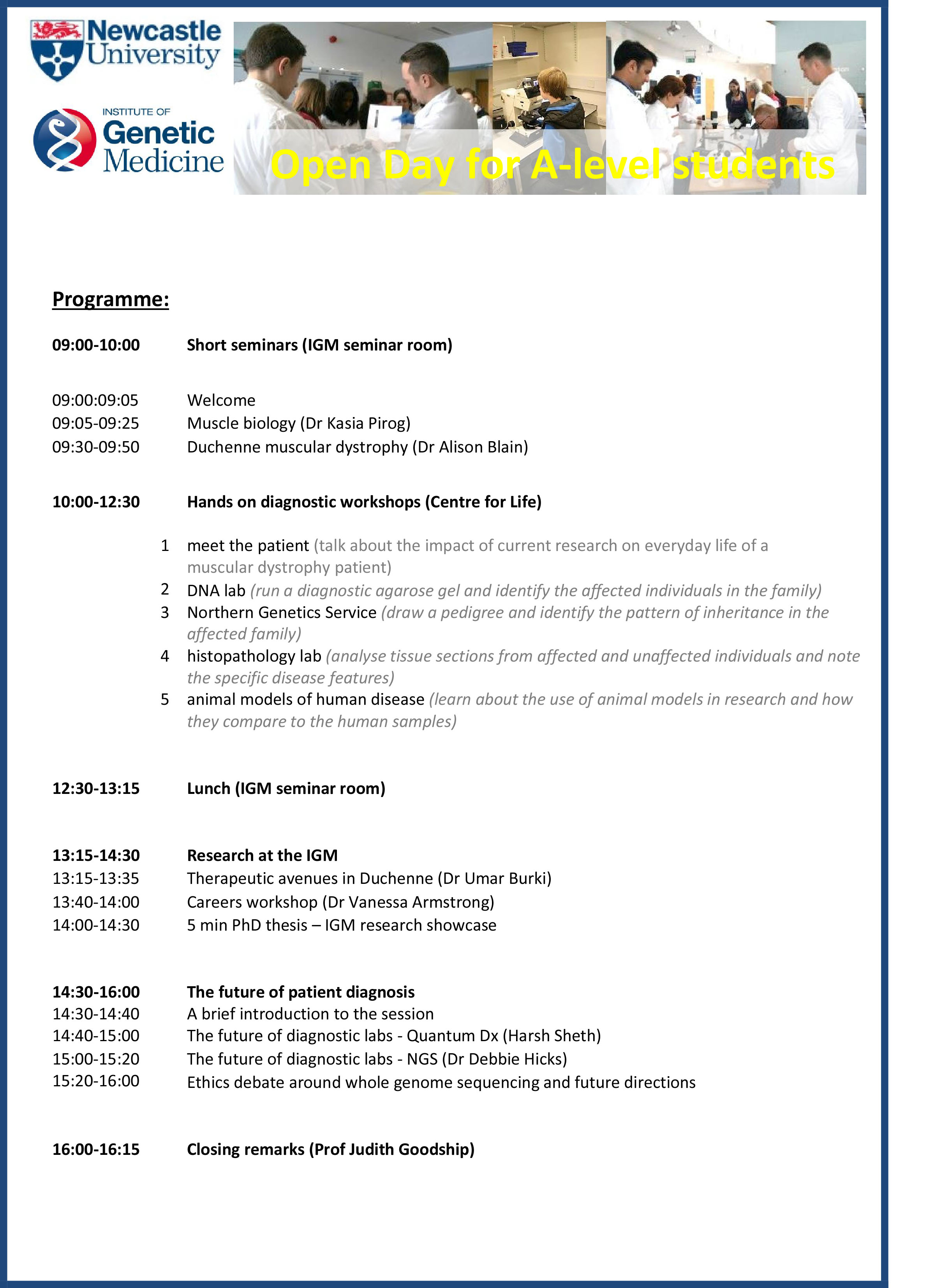On 10th December 2014 we hosted a collaborative meeting with a skeletal genetics group from the Wellcome Trust Centre for Cell Matrix Research in Manchester.
The meeting was very well attended and much fun was had too!
On 10th December 2014 we hosted a collaborative meeting with a skeletal genetics group from the Wellcome Trust Centre for Cell Matrix Research in Manchester.
The meeting was very well attended and much fun was had too!
The members of SYBIL (Systems biology for the functional validation of genetic determinants of skeletal diseases), the EU-FP7 collaborative project which we’re participating in, were certainly busy in 2014. Here’s a compliation of recent press releases:

The following Institutes were represented:
and presented a very exciting programme: uk-german-meeting-Allendale
We have generated this video as part of the Arthritis Research UK public engagement event, “Arthritis Matters”, on the 26th June 2014. It explain what it is that we do in the SYBIL consortium which unites 18 centres of research across Europe in a collaborative project aiming to understand the mechanisms of common and rare skeletal conditions.
You can see the video here. We hope you enjoy it!
 Hundreds of people all over the country will be moving an extra special mile between 23 and 31 August to raise funds for vital research and support for families affected by muscle-wasting conditions. To join the exciting initiative, the IGM are busy organising a Charity Sports Day to be held from 11:30am on Friday 29thAugust in Times Square, Centre for Life.
Hundreds of people all over the country will be moving an extra special mile between 23 and 31 August to raise funds for vital research and support for families affected by muscle-wasting conditions. To join the exciting initiative, the IGM are busy organising a Charity Sports Day to be held from 11:30am on Friday 29thAugust in Times Square, Centre for Life.
Scientists from the Institute of Genetic Medicine are hosting a series of exciting “Meet the Scientist” events at the world famous Body Worlds Vital exhibition at Centre for Life this autumn. We are at the exhibition every weekend in September, showcasing our research and explaining how it fits within a bigger picture of human health and development using the exhibits and our own research samples to illustrate what we do at the Institute. A brief agenda is shown below:
 6th September – mitochondrial diseases
6th September – mitochondrial diseases
7th September – heart function and disease
13th September – cartilage and bone development, aging and disease
14th September – hearing and vision
20th September – skeletal muscle function and disease
21st September – skeletal muscle disease patient referral systems and large research consortiums
27th September – Human Developmental Biology Resource
28th September – kidney function and disease
Thank you all for volunteering to take part!
Here’s a poster explainign the SYBIL project in layman’s terms:
And you can download the .pdf file here: SYBIL lay poster
On 2nd of July 2014 we are hosting an Open Day at the Institute of Genetic Medicine. The day is specifically targeted at A-level students considering a career in science. With hands on experiments, interviews with real scientists, students and patients, stimulating debates and presentations, it is designed to help answer all the questions you may have about studying at Newcastle university and about a career in science.
The theme of the day is “From bench to bedside”:
 We have also organised a similar event in December 2012, you can find more details of it here. If you’re interested in participating in a similar event at a later date, please drop us an email at: IGMengagement@ncl.ac.uk Thank you!
We have also organised a similar event in December 2012, you can find more details of it here. If you’re interested in participating in a similar event at a later date, please drop us an email at: IGMengagement@ncl.ac.uk Thank you!